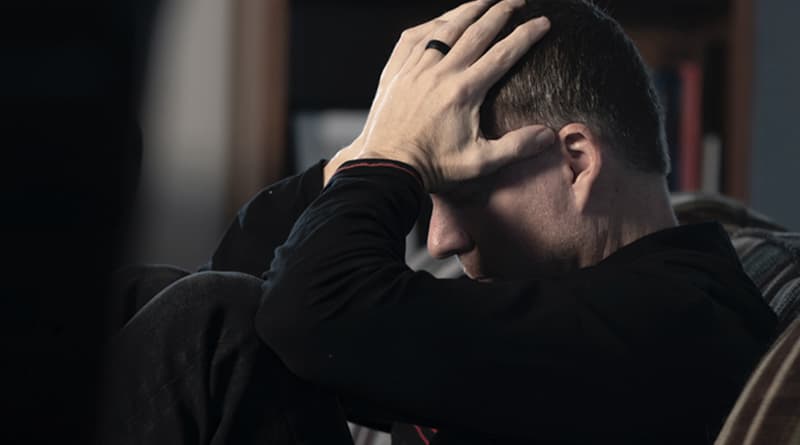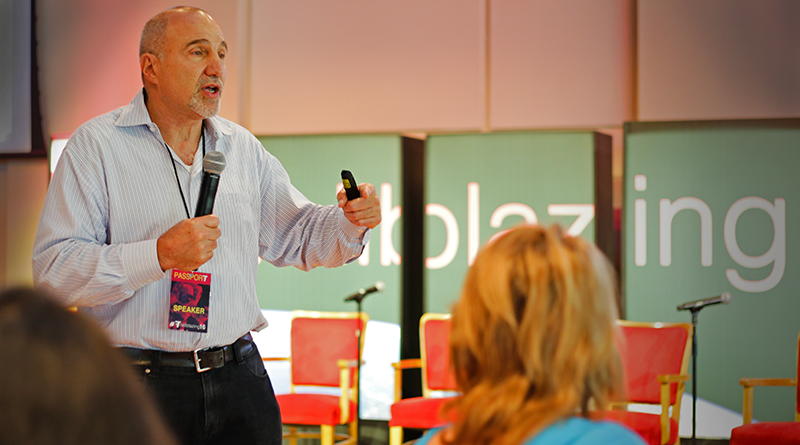
Mental Health & Relationships: Navigating Manipulation in Dating
By Darlene Lancer, JD, LMFT
My Last Date with a “Vampire”
I was certain that Trevor was my soul mate – fallen from heaven. He didn’t look like a vampire, quite the opposite, in fact. He was tall and lean, with wavy brown hair, green eyes, and a broad, welcoming smile that greeted me as I walked up to say hello outside Café d’Etoiles where we met for lunch. It was that smile that started the whole thing. We soon discovered a mutual love of adventure and shared stories of trips to Tibet. He said what he found most attractive is a “sexy woman with a great pair of brains,” adding, “you’re beautiful, that makes easier.” I was charmed by his engaging warmth and articulate, quick wit.
I couldn’t decide between the chopped vegetable and curried tuna salads, so he ordered both, noting that we had the same tastes and suggesting we split. Along with being a chef, an art buff, a philanthropist, successful investor, and a season ticket holder at Disney Concert Hall, he was a psychology professor specializing in ethics. Right away, he asked me out again, saying he’d call to set it up. This looked promising.
Warning Signs
When he called, making plans felt arduous. He complained about traffic coming to pick me up for dinner on a Monday night. When he arrived, he spent an hour perusing my bookshelves. We discovered favorite authors, psychology theorists, and meditation teachers we knew. I was elated when he said he’d meditated for the past thirty years and spent half that long in therapy. He went on about dualism and philosophy, which was over my head, but it made his intended favorable impression. I know he too was captivated, for as we walked to the door, he gently put his hand on my bare shoulders and said we were like Paul Simon’s song, “old friends . . . “bookends,” because we shared so many books between us.
Over a candlelight dinner of pasta and wine, I could feel a sensitivity beneath his charm, confirmed when he revealed that he was painfully shy, and then, to my chagrin, divulged that he was not very good at relationships. I wondered what he meant. The answer came in a dream:
We’re in bed discussing philosophy. I’m disappointed that there isn’t more of a connection, when I realize he’s emotionally unavailable, but think the sex will be good.
Trevor waited longer to set a third date, another bad sign, but at least it was for a Saturday night. He said he wanted to take things slow, which I agreed was wise, but then he added, “I’ve had more relationships lasting only three or four months than I care to admit.” A red flag, I thought, but replied, “Yes, it’s always a risk, whether or not you go slow.” We talked for over an hour on everything from God and higher consciousness to hiking trails and recipes ─ “using the whole bow,” he said.
Mounting Clues
By the time Saturday arrived, I awoke terrified to go out with him. The clues were mounting as fast as was my desire, headed for a collision that put my back in such spasm I thought I mightn’t make the date – but felt I had to. I wasn’t aware of what my body was trying to tell me. My dream that morning advised me to do singing therapy, but I could hardly peep without bursting into tears, I was so afraid of abandonment. I had ended two relationships in the past three years with men who had intimacy issues and couldn’t commit, each time followed by a long bout of chronic pain. The only song I could think of was “Cockeyed Optimist,” and that I surely was. I called my brother in hysterics, got a massage from a friend, and sang the song over and over until I could sing the words, “hope in my heart,” without choking.
It was a long walk to the restaurant, so I left my purse in the car. We dined at an upscale Italian restaurant on swordfish and sea bass that were cooked to perfection. I blushed when he took my hand and sensuously described the meal and his perceptive cooking skills –how he relished the juiciness of the fish and his refined talent to slowly simmer plump pears at just the right temperature in order to savor their fragrance without harming their delicate texture.
Since he was an ethicist, I wondered what he thought about Clinton’s ethics. He pointed out a curious loophole under ABA Rules that would have exonerated Clinton had he never touched or intended to pleasure Monica, which raised the question of whether that was possible. “A query worthy of research,” I added.
“What turns you on?” he asked. “I really don’t want to get into that,” I answered, “but as Cyrano knew, for most women, talking, is a good start.”
Then he asked, “Suppose we were out to dinner, would you mind saying you weren’t wearing panties – whether or not it was true, that is?”
“Why, not?” I teased.” “If I’d only brought my purse, I could take mine off!” I was on six cylinders trying to keep up with the scintillating, titillating repartee.
The waiter spilled water filling my glass, and to my embarrassment, Trevor let him have it. After we left, Trevor wanted to pick up his credit card that he’d left where we’d previously dined on Monday. When the hostess couldn’t find it, with a smile on his face, he belittled her intelligence and fitness for her job. My blood ran cold. Not knowing what to do, I just said, “You’re showing me another side of yourself.”
“Some women like it. They feel protected.”
A week went by before he called. Too long, I thought, but it gave me time to think. I hadn’t met anyone so attractive in a long time. Yet, I was troubled by his scary rage covered with a false smile. I remembered how destructive a game of seduction can be.
Interview with a Vampire
I recalled my reaction to the film, “Interview with a Vampire.” It was the Sunday after Thanksgiving, 1994. Back then, the Dracula mythology held an alluring appeal. The irresistible rapture of the vampire’s kiss fascinated something obscure in my unconscious. Perhaps it was a yearning to be taken over completely, to surrender control, ultimately, dying for love, like Tristan and Isolde.
None of this was on my mind as I awakened that Sunday to energy softly vibrating throughout my body, not an uncommon occurrence, except that day it was especially blissful. As I lay motionless, my eyes closed, the boundaries of my body disappeared. Every atom inside me hummed in waves of ecstasy as if God were caressing each cell. I was wide open energetically, and thought another film would be a better choice, but dismissed the idea, since I had already made plans with someone.
It was a sunny afternoon. The theater was only half full. About twenty minutes into the movie, there was a tavern scene where Tom Cruise teaches Brad Pitt how to seduce young, innocent women. I noticed my stomach was mildly upset. Cruise was demonstrating how to kiss his victim in order to draw her blood. With one kiss she swooned, then collapsed, dead in his arms. My stomach was getting more and more queasy. Then Cruise bragged to his young protégé how painless and effortless it was to quench his appetite. I felt nauseous and excused myself to go to the ladies’ room.
I walked about ten feet up the aisle, feeling shaky. The next moment, I was flat on a cold cement floor. I opened my eyes and was staring at the roof of the theater. My skull throbbed from the impact, but the cold felt good, and the nausea had stopped. I was surrounded by the legs of theater seats. Apparently, I had fainted and fallen between the rows. A woman helped me up, and we continued walking. Soon I was dizzy and reached for an aisle seat to steady myself and then tumbled again, this time, face down, hitting my forehead on the cement. An usher helped me to the ladies’ room, where I spent fifteen minutes on the floor, sucking ice chips, unable to get up without fainting.
The theater manager called an ambulance to take me to the nearby UCLA Emergency Room. While the paramedic hooked me to an IV, he recollected other recent fainting moviegoers. “Pulp Fiction claimed a few.” Apparently, fainting at the movies was not uncommon. He asked if I were ill or hadn’t eaten breakfast. I didn’t bother to explain about my morning meditation, but I wished I’d trusted my intuition and chosen a different film.
Seduction vs Manipulation
Thinking about the events of that day, I realized that it was not the graphic bloodletting that aroused my disgust, but the emotional content, which portrayed a familiar episode with men from my past – seduction, exploitation, and abandonment. My blood was sucked by “vampires” I had loved and hated, relishing every minute of it, while I wasted away. Like a narcissist and addict, a vampire needs the victim’s blood to enliven his own deadness, and the victim dies for the promise of eternal life or love. And hadn’t I played along, been a vamp, and enlivened by the seduction, too?
Seduction is a deadly, parasitic game. Growing up, I hadn’t learned that seduction is manipulation. There had been a time I was mesmerized by their charm and their swagger, like the “swinging narcissist Frank Sinatra.” But I was learning new values to replace those of my family, where boundaries, seduction, and the distinction between lust and love were confusing. My weakness with men had been my codependent longing to merge – to experience the closeness I never had with my narcissistic mother. Time after time, I was wounded by unavailable men who couldn’t love, or more correctly put, couldn’t receive love and preferred the safety of the pursuit. I colluded by loving too much too quickly, which scared them off. These games always take two. We all had a narcissistic parent.
It dawned on me that from the moment we met, Trevor had dazzled me with his smile. It was exactly like that of my grown son, whom I’d been missing. That awareness dissolved my lust and cleared my mind. I then grasped what my dream had warned. Trevor was unavailable for the kind of relationship I truly wanted. I reflected on the warning signs – his charm, how he’d mirrored my tastes and interests, the difficulty making dinner plans convenient for him, his sexual seduction, eruptive anger, and his track record with relationships.
Kicking the Habit
He eventually called to say he couldn’t get me out of his mind. I wondered what he meant. He explained that everything about me was perfect and that he couldn’t find the usual flaw, like a birthmark, which I thought was pretty shallow. “There just wasn’t chemistry,” he added. I knew this was a ruse, because there was plenty of chemistry. Perhaps he felt ashamed that I was put off by his rudeness at the hostess. I didn’t fit the mold of many women who are attracted to the often discourteous boldness of narcissists. Moreover, his habit of fault-finding was not only a harbinger of unhappiness, but it also provided him an excuse to avoid getting close to women. When I asked him about his seductive comments at dinner, he replied, “Oh that was just a game.” He confirmed what I’d already known: Narcissists are the quintessential game-players.
I slipped, but didn’t fall. Trevor was my last date with a vampire. I had finally kicked my habit.
On my website, find Narcissist Quit Kit and Dating, Loving, and Leaving a Narcissist: Essential Tools for Improving or Leaving Narcissistic and Abusive Relationships, which provides strategies, steps, and scripts to improve your relationship or empower you to end it.
© Darlene Lancer 2006, 2023
This article was originally published here, and is reprinted with the author’s kind permission.
Darlene Lancer is a Licensed Marriage and Family Therapist and expert on relationships and codependency. She’s the author Conquering Shame and Codependency: 8 Steps to Freeing the True You and Codependency for Dummies and six ebooks, including: 10 Steps to Self-Esteem, How To Speak Your Mind – Become Assertive and Set Limits, Dealing with a Narcissist: 8 Steps to Raise Self-Esteem and Set Boundaries with Difficult People and Freedom from Guilt and Blame – Finding Self-Forgiveness, also available on Amazon. Ms. Lancer has counseled individuals and couples for 30 years and coaches internationally. She’s a sought after speaker in media and at professional conferences. Her articles appear in professional journals and Internet mental health websites, including on her own, www.whatiscodependency.com, where you can get a free copy of “14 Tips for Letting Go.”




